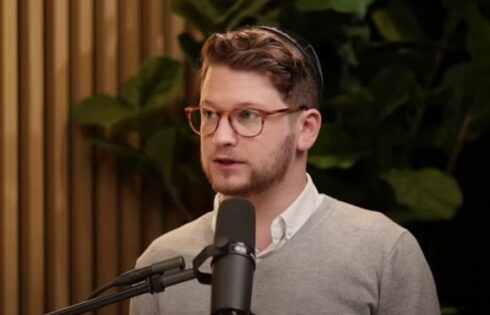
University redacts witness statement, doesn’t have filed reports for some accusations
Officials at San Francisco State University won’t explain why they redacted a witness statement to the police concerning purportedly offensive graffiti discovered on campus.
The College Fix obtained a copy of the police report for an incident involving graffiti at a university parking garage via a public records request. However, that report only covers one of the days of incidents – the public records department told The Fix it has no records for several other alleged incidents.
“The only incident that was reported was already produced to you. We have done a thorough search and there are no more incidents that were reported,” an unsigned email on Tuesday stated.
But while the university condemned anti-black and anti-LGBT language, it did not mention that there was also graffiti that said, “I LIKE MEXICANS.”
The markings that were plastered on the rooftop of a campus building reportedly included offensive phrases like “GAYS SUCK,” the n-word, and “F*** THE GAYS.”
The Fix contacted the campus police department to ask for an update on the status of the investigation and if any suspects had been arrested or charged.
The Fix also reached out to Christopher Lujan, the SFSU employee who contacted the campus police about the graffiti, to ask if he could provide the statement he gave to police since it was redacted.
The university police and Lujan both did not respond to multiple phone calls and requests for comment in the past three weeks.
The university initially told the campus community that the school’s police department was currently investigating the September graffiti and two other incidents in October, but that it had no evidence or leads on potential suspects.
Someone also left graffiti that said “GOD IS TRANS,” according to the police report, but this was “circled and crossed out with an ‘X’ in red spray paint.”
The Fix contacted the university’s media relations team and spokesperson Kent Bravo to ask if the school has any reason to believe this was a hoax given that the same person who spraypainted “I like Mexicans” also appears to have painted anti-Black and anti-LGBT phrases.
The Fix also asked why the school redacted the interaction between the faculty member who reported the graffiti and the police officers who responded to the call.
No university representative responded to several phone calls and email inquiries within the past three weeks.
California grants ‘very broad exemption’ for police to redact reports, experts says
Several free speech experts said the university has broad authority to redact police report portions due to California law.
“The California Public Records Act actually has a very broad exemption for records of investigations conducted by law enforcement agencies,” David Loy, legal director at the First Amendment Coalition, told The Fix in a phone interview.
“We have this police report by the SFSU Police Department and under California law, they don’t actually have to disclose the report itself because California has, unlike many other states, a very broad exemption for investigatory records,” Loy said.
Loy also said the police department would be allowed to redact certain information in the report if they believed it would cause danger to the witness and interfere with the investigation.
He said that the university is legally able to do this due to strict state laws in California regarding the disclosure of public records.
He said:
California is much less transparent about law enforcement than a number of other states. In a number of other states, it is possible to get full or almost full copies of police reports. It is possible to get things like police records and police personnel records without a lot of trouble. California is much stricter on disclosure of those matters.
The director of the Brechner Freedom of Information Project at the University of Florida told The Fix that California is very “secretive” in regard to police activity in the state and that it should be more accountable to the public.
“Oddly, [California] is one of the most secretive states in the nation when it comes to the ability for people to find out what police are up to,” David Cuillier said in an emailed statement to The Fix.
“I think a big part of that is there is a strong culture of privacy protection in California, and it is well-intentioned, but it goes too far,” he said.
Cuillier said that police departments should be more open to the public, given the level of authority they possess.
“Of all agencies, police should be the most transparent,” he said. “They have the ability to detain you, jail you, and even kill you.”
“That kind of power demands accountability, and the ability for people to see what they are doing, including through police reports.”
MORE: ‘Middle-aged Black male’ vandalized FSU Black Student Union House
IMAGE: Javarman/Shutterstock
Like The College Fix on Facebook / Follow us on Twitter






Please join the conversation about our stories on Facebook, Twitter, Instagram, Reddit, MeWe, Rumble, Gab, Minds and Gettr.